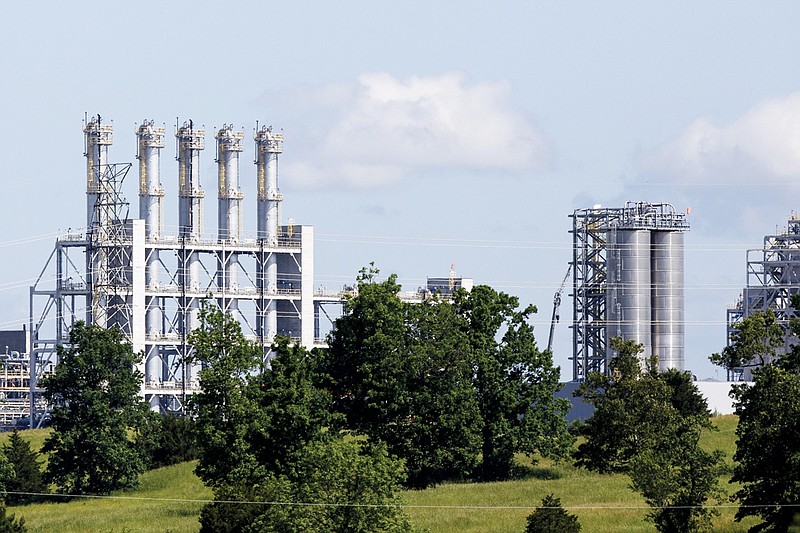The trade agreement with China that President Donald Trump signed Wednesday could provide a boost for the biggest manufacturing investment ever made in Tennessee.
The Phase 1 trade deal that U.S. and Chinese leaders inked in Washington includes purchase commitments by the Chinese of U.S. goods and could provide a major boost for the $2.6 billion polysilicon plant Wacker Chemical built near Charleston, Tennessee, to help serve the Chinese solar panel market.
"Inclusion in the Phase 1 Trade deal could be a critical first step towards regaining meaningful access to the Chinese market, which represents over 92% of global demand," said Mary Beth Hudson, vice president for the Wacker Polysilicon plant near Charleston - the biggest private manufacturing investment ever made in Tennessee. "This Phase 1 agreement represents an important first step in resuming exports and meeting the increasing demand of Chinese customers for highest quality polysilicon."
Polysilicon is the fundamental building block for the semiconductor and solar industries, used to make ingots and wafers for solar cells and the integrated circuits that power everything from smartphones to autonomous vehicles and electronics. The U.S. polysilicon industry represents over $10 billion in capital investment.
In 2014, China closed its market to U.S. polysilicon by imposing tariffs on imports of U.S-made solar-grade polysilicon. In response, Wacker shifted its production to serve the China market to its plants in Germany and revamped its production schedule and focus in Bradley County to other markets.
China has heavily subsidized its own polysilicon producers since imposing the tariffs on U.S. producers and has focused on concentrating demand for polysilicon in China.
Officials said Wednesday that details of the China trade agreement remain classified and any benefit will depend further on how China implements the agreement.
"We hope this agreement will result in a more level playing field for this important building block to the solar and electronics industries," said Mark Bassett, chairman and CEO of Michigan-based Hemlock Semiconductor Operations (HSC), which scrapped its plans to build a polysilicon plant near Clarksville, Tennessee after the Chinese tariffs were adopted.
The existing Chinese tariffs also forced REC Silicon to shutter its $1.7 billion polysilicon plant in Moses Lake, Washington and lay off around 600 workers.
"Being locked out of the global market for polysilicon for the last several years has cost the U.S. high-paying jobs and billions of dollars in investment," said Tore Torvund, CEO & President of REC Silicon.
In response to the Chinese tariffs, the United States also imposed tariffs on solar panels imported into the United States from China.
